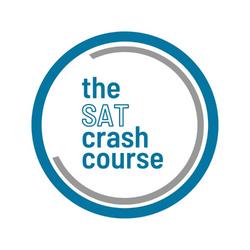Whether you’re new to the SAT study process or have been studying for months, there are always details and questions that are worth pondering. Here is a guide to everything you need in order to ace the SAT exam— a collection of the most frequently asked questions:
What is the SAT Test?
The SAT, originally called the “Scholastic Aptitude Test”, was created by the College Board as a means of assessing the level of students’ college readiness. However, nowadays, the SAT is seen as an extra indicator of a student’s potential performance in their first year of college.
When is the SAT?
The College Board offers the SAT seven times a year: in March, May, June, August, October, November, and December. The test generally falls on the first weekend of each month, but the exact dates can be found on the College Board website or in this image below:
Anticipated SAT Dates for 2023-2024:
| Test Date | Deadline to Register | Deadline to Cancel |
| August 26, 2023 | July 28, 2023 | August 15, 2023 |
| October 7, 2023 | September 8, 2023 | September 26, 2023 |
| November 4, 2023 | October 5, 2023 | October 24, 2023 |
| December 2, 2023 | November 2, 2023 | November 21, 2023 |
| March 9, 2024 | February 23, 2024 | February 27, 2024 |
| May 4, 2024 | April 19, 2024 | April 23, 2024 |
| June 1, 2024 | May 17, 2024 | May 21, 2024 |
What does the SAT look like?
The SAT consists of 4 sections: reading, writing, math (non-calculator), and math (calculator).
Reading:
- 52 questions
- 65 minutes
- 1 literary passage from a work of fiction
- 1 or 2 passages from a U.S. founding document, such as the US Constitution, or a text in the Great Global Conversation, which includes works from around the world that are centered around topics such as freedom or justice. An example would be a speech by Nelson Mandela.
- 1 passage from a work of economics, psychology, sociology, or some other social science.
- 2 passages from scientific works that focus on foundational concepts and developments in Earth science, biology, chemistry, or physics.
Writing:
- 44 questions
- 35 minutes
- 4 readings, each 11 questions
- At least 1 is a narrative, or written in a story-like manner. This passage is not fictional, but it could be a nonfiction account of an historical event.
- The remaining passages are typically argumentative, but otherwise, they are informative and explanatory.
Math (Non-Calculator):
- 15 multiple-choice questions, 5 grid-in questions
- 25 minutes
- Heart of Algebra
- Problem Solving and Data Analysis
- Passport to Advanced Math
- Additional Topics in Math
Math (Calculator):
- 30 multiple-choice questions, 8 grid-in questions
- 55 minutes
- Heart of Algebra
- Problem Solving and Data Analysis
- Passport to Advanced Math
- Additional Topics in Math
What skills do I need to know for the SAT?
The SAT tests skills taught in all typical high schools, ranging from Pre-algebra, Algebra I, Algebra II, Geometry, to Pre-Calculus.
Specifically, the SAT includes questions regarding:
- Linear equations and systems
- Inequalities
- Ratios, proportional relationships, percentages, and units
- Analyzing quantitative data
- Probability
- Algebraic expressions
- Quadratic and nonlinear equations
How important is the SAT?
These days, many colleges are test-optional. While this is certainly a benefit for those who do not have strong test scores, experts suggest submitting scores if they are above average.
Benefits to submitting SAT scores:
- Tests like the SAT will allow you to hear from colleges that are interested in you
- Colleges use test scores to grant scholarships
- Scores may determine placement in college courses
- Scores can strengthen your application and set you apart from a student you would otherwise be group with
Remember, the SAT is not the most important factor in your application, but it can certainly help you to stand out from the crowd.
How is the SAT scored?
When you receive your score report after taking the SAT, you may notice there are several scores listed. The SAT releases your total score, section scores, test scores, subscores, and cross-test scores.
Here is the break-down for what each score means:
- Total Score → Your total score is a number between 400 and 1600. The total score is calculated by adding your English section score and your Math section score. Your English score, comprised of the Reading section and Writing section (both weighed equally), and Math score are both out of a maximum score of 800.
- Section Scores → These scores are used to calculate your total score, and are based off of your raw scores, meaning the exact number of questions you got correct in each section. Using a table, which varies from test to test, your raw scores are then converted to a number between 200-800. For instance, a 57/58 questions answered correctly may equate to an 800 on some tests, and a 790 on others.
- Test Scores → Similar to the section scores, the test scores are based off of your raw scores. Using a table once again, your raw scores are converted to a number between 10-40. Like the section scores, these numbers can vary from test to test.
- Subscores → Subscores range from 1-15 and are based on the different categories in each section. For instance, the Heart of Algebra category or Passport to Advanced Math category.
- Cross-test Scores → These scores are derived from more than one of each test. The two categories are Analysis in History/Social Studies and Analysis in Science, and both are drawn from 21 questions in the Reading section, 6 in the Writing section, and 8 in the Math section. The raw score from 1 to 35 for each test is then converted to a score between 10 and 40.
What SAT score do I need to get into my top school?
There is no single answer to this question, as “good” SAT scores range depending on the school you are applying to. Fortunately, there are many resources in which you can see the 25th percentile, 50th percentile, and 75th percentile scores from students attending said universities, and make your comparisons from there. It is safest to aim for a score in the 75th percentile of the school you want to attend.
Here are the 25th, 50th, and 75th percentile scores for the Top 15 Universities in the US:
| University | 25th Percentile Score | 50th Percentile Score | 75th Percentile Score |
| Princeton | 1460 | 1510 | 1570 |
| MIT | 1510 | 1550 | 1580 |
| Harvard | 1480 | 1530 | 1580 |
| Stanford | 1470 | 1520 | 1570 |
| Yale | 1480 | 1530 | 1580 |
| UChicago | 1510 | 1550 | 1580 |
| Johns Hopkins | 1510 | 1540 | 1570 |
| Penn | 1480 | 1530 | 1570 |
| CalTech | 1510 | 1540 | 1570 |
| Duke | 1480 | 1530 | 1570 |
| Northwestern | 1460 | 1510 | 1560 |
| Dartmouth | 1440 | 1500 | 1560 |
| Brown | 1460 | 1520 | 1570 |
| Vanderbilt | 1480 | 1530 | 1570 |
| Rice | 1490 | 1530 | 1570 |
| WUSTL | 1490 | 1530 | 1570 |

When are SAT scores released?
For most SAT exams, scores reports are released 13 days, or two weeks, after test day. Around half of SAT test takers will receive their scores at 8:00AM EST, while the other half will receive them at 8:00PM EST.
When scores are released, you will receive an email from CollegeBoard. The link in the email will direct you to Student Score Reports, where you can sign into your account.
Here is a list of score release dates for the remainder of 2023:
| Test Day | Score Release Day |
| March 11, 2023 | March 24, 2023 |
| May 6, 2023 | May 19, 2023 |
| June 3, 2023 | June 16, 2023 |
How Do I Get the Score I Want?
It’s important to know where you are in order to strategically plan out how you will get your target score. Our AI-based level test will tell you your current score as well as your strong and weak areas. Then, you can get help from our SAT Prep Courses that help you prepare for the test in the way that works best for you. You can choose your weakest subject to start with, or take all three courses at the same time depending on your needs. Whatever your situation is, the only thing that we aim for all of our students is to have their test prep journey the shortest and the most successful one.
Update : Since the launch of the new digital SAT, our experts have created 10+ digital SAT practice tests that you can use for your effective preparation. The full-length, adaptive tests will give you a complete experience of the new digital SAT. Take the test right now!

